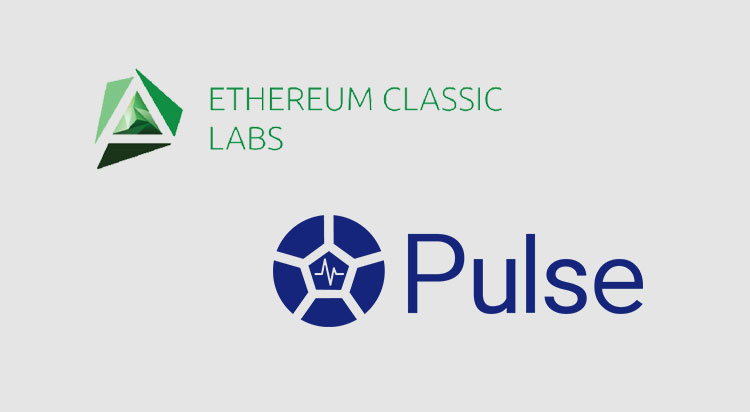Pulse Agent, an end-to-end protocol and decentralized application (DApp) suite seeking to create a service marketplace, has announced a partnership with Ethereum Classic Labs, the Ethereum Classic (ETC) blockchain incubator.
In the Pulse Agent marketplace, buyers can express intent, issue RFPs, discover suppliers, evaluate supplier responses, seek advice from experts, and collaborate with stakeholders. The Pulse protocol seeks to transform both B2B procurement and B2B marketing by creating a smarter way to connect in-market buyers directly with experts and sellers.
Partnering with Ethereum Classic
Ethereum Classic has all the advantages of Ethereum without the complexity and risks of the upcoming changes to proof of stake. Users also enjoy lower gas costs and more decentralized and simple core philosophy. ETC Labs believes these principles will allow Pulse to be successful in its endeavor to succeed in the marketplace.
Through partnering with Ethereum Classic Labs, Pulse will gain access to a network of customers and can help the company engage in the insurtech ecosystem.
Over the next year, Pulse seeks to enter the business insurance market. Their goal is to generate 250 listings per day with the expectation of growing to 500 daily listings by 2021. Pulse wants to create a large ecosystem of APIs/data services and with the help of ETC Labs.
How The Marketplace Works
Step 1 – The buyer generates an ad or promotion for a job that they need to be done. The ad has all the details and necessary information needed to complete the job. The community then categorizes the listing and approves it. The buyer then cryptographically signs this listing (maintained in IPFS with its hash committed on-chain). This now signals to sellers that the listing is open.
Step 2 – On the seller side, Pulse has a community of relays that filter through these listings. They organize each listing in a database separated by industry, specific markets, geographies, etc. The data is then presented to sellers who subscribe to specific market criteria and review each listing. The seller now has the opportunity to engage in a bid that will contain the signature of both the seller and the relayer, and the Pulse Platform Smart Contract will move tokens between the seller and escrow service.
Step 3 – The buyer and seller can now converse via a decentralized chat client that is either local or hosted, so that their messages (including reputation data, documents, appointments, and even tokens) aren’t hacked or surveilled upon. Both buyers and sellers can bring their own decentralized reputation into the Pulse network (using, for example, the Ink protocol), attach documents from decentralized lockers like IPFS or Storj, and provide decentralized payment methods.
The Pulse protocol connects buyers, sellers, relayers, and experts in a distributed, meritocratic, and transparent ecosystem where purchase intents are generated, distributed, bid for, engaged with, and settled seamlessly without any intermediaries.
Pulse is specifically focused on markets related to high-value products and services like Software, IT Services, Marketing Services, Legal Services, Financial Services, and Insurance that exhibit high cost per acquisition, high customer lifetime value, and complex FIND dynamics.
